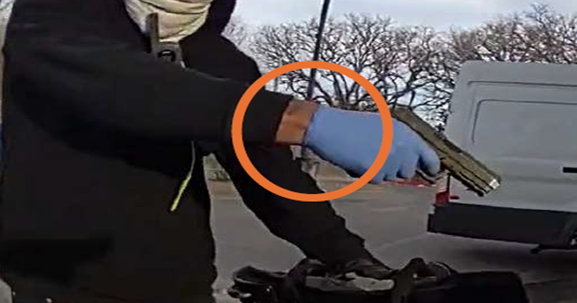After boy's controversial TSA pat-down, a look at SPD
An outraged mother gained widespread attention with a video she posted to Facebook showing her 13-year-old son getting a thorough pat-down by a Transportation Security Administration officer at the Dallas/Fort Worth International Airport. Jennifer Williamson accused the TSA of treating her family “like dogs,” and noted that her son has sensory processing disorder (SPD).
The video shows a TSA officer methodically patting down her son from head to toe for about two minutes.
“We were treated with utter disrespect as if we were criminals,” Williamson said in an interview with “CBS This Morning.”
She called the pat-down her son was given “excessive.” “They went over his sensitive areas, a little more than necessary, especially given that he wasn’t wearing bulky clothing or anything like that,” Williamson said.
Her son’s condition made the ordeal even more upsetting. “My son has sensory processing disorder so the touch can be very difficult for him to handle,” Williamson said.
SPD is a neurological condition in which the brain has trouble receiving information from the senses. Symptoms can range in severity from mild to incapacitating, and they differ from person to person, but often involve hypersensitivity to sound, sight, and touch.
Elysa Marco, M.D., a pediatric cognitive and behavioral neurologist and director of the Sensory, Neurodevelopment & Autism Program (SNAP) at the University of California San Francisco, said some of her patients liken the feeling of a light touch to that of “a profoundly itchy sweater times 100.”
“Everybody’s going to feel uncomfortable when you scrape your nails down a chalkboard or when you wear that itchy wool sweater,” Marco told CBS News. “Everyone can understand that, but it’s important to realize that some people have a better ability to modulate their response to stimuli and for our patients the threshold is very low.”
Conversely, some people with SPD may under-respond to sensations and show little to no reactions even to extreme pain, heat, or cold.
A study done in 2004 estimates that at least 1 in 20 children are affected by SPD. While the condition is more commonly reported in kids, Marco says adults can have it, too.
SPD is not an official medical diagnosis in the Diagnostic and Statistical Manual of Mental Disorders (DSM-IV), an authoritative guidebook for doctors, but is part of the criteria for autism and is currently under study to be considered for inclusion in the next update.
Marco says the condition is more common in children who were born prematurely, those with fetal alcohol syndrome, and kids with certain genetic conditions.
Treatments include occupational therapy that can help patients tolerate different sensations. Certain medications may also help.
In Williamson’s case, the TSA said it was complying with new policy procedures, which took effect on March 2. The Facebook video shows the officer explaining the process first, then conducting the pat-down in which the officer used the backs of his hands when touching sensitive areas of the body, as the agency requires.
Williamson said the whole ordeal began when agents found a laptop in her son’s book bag as it went through the scanning machine.
She says she worries that her son will now have anxiety around traveling, something she says the family does quite often. She said she and her son have had open conversations about the event since it took place, but that if it continues to pose problems, she will seek professional help to help him cope.
While the experience was troubling for the family, perhaps there may be a silver lining in that the video she posted is bringing some awareness to SPD.
“We need to make sure that there is a growing public awareness that there are people — adults and kids — who are particularly sensitive to different types of information from the environment and that giving these individuals the help that they need is important and appropriate,” Marco said.




